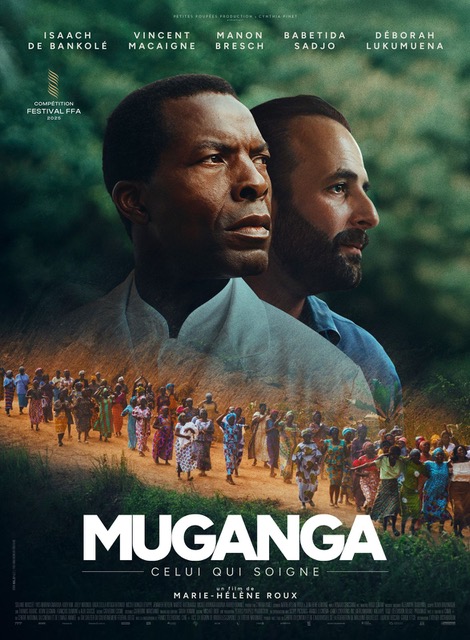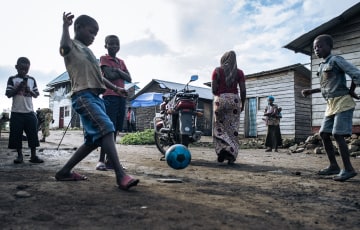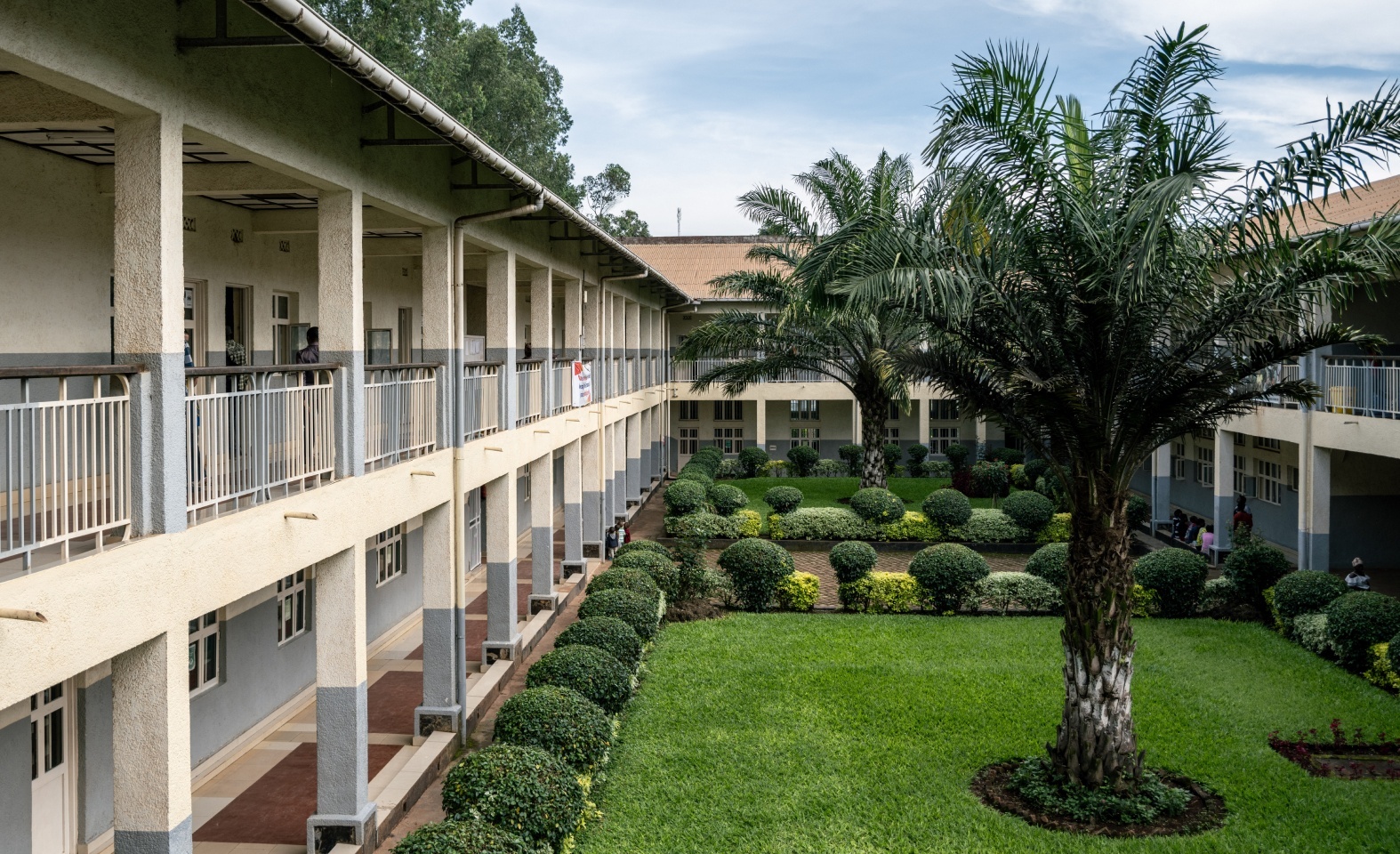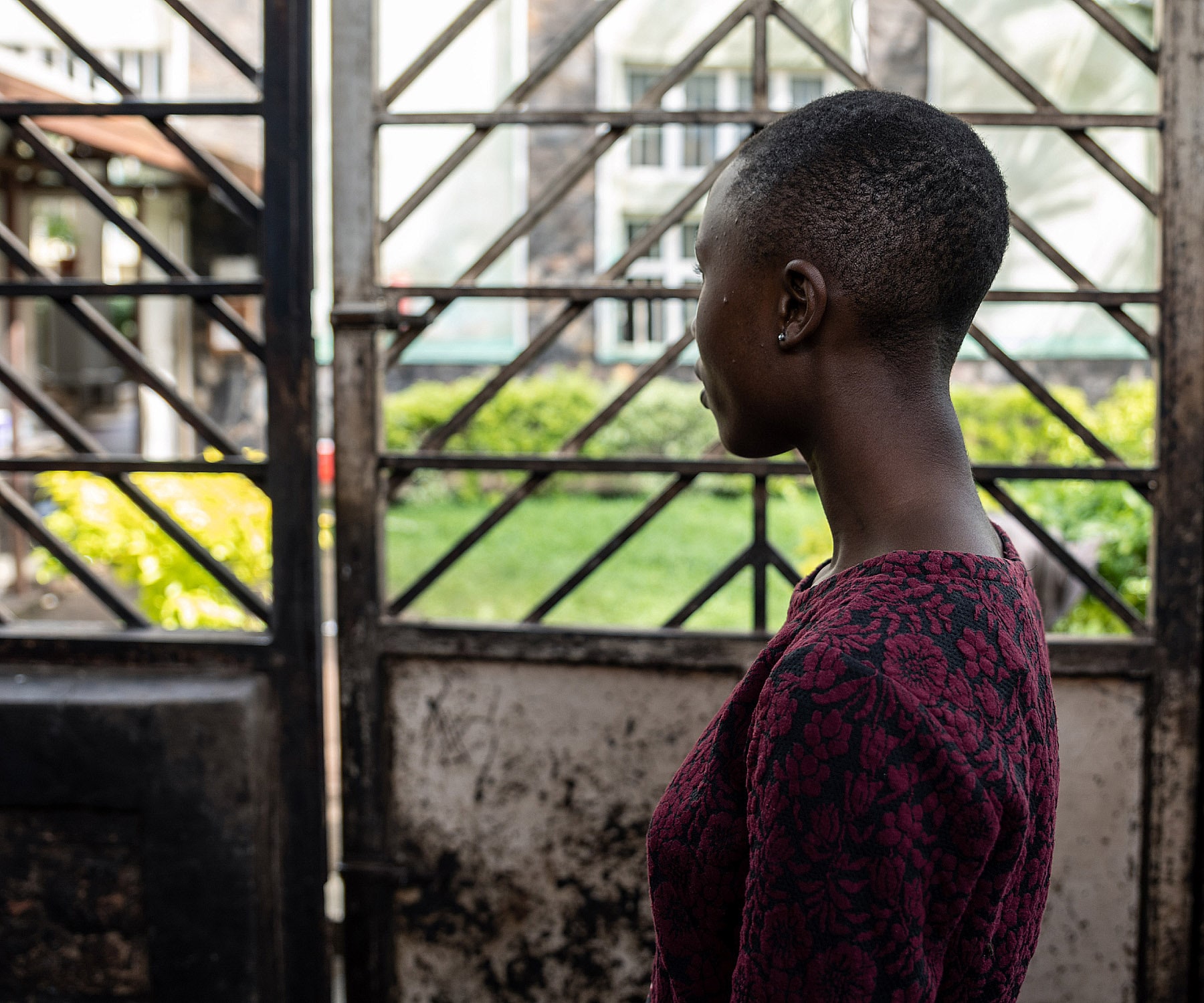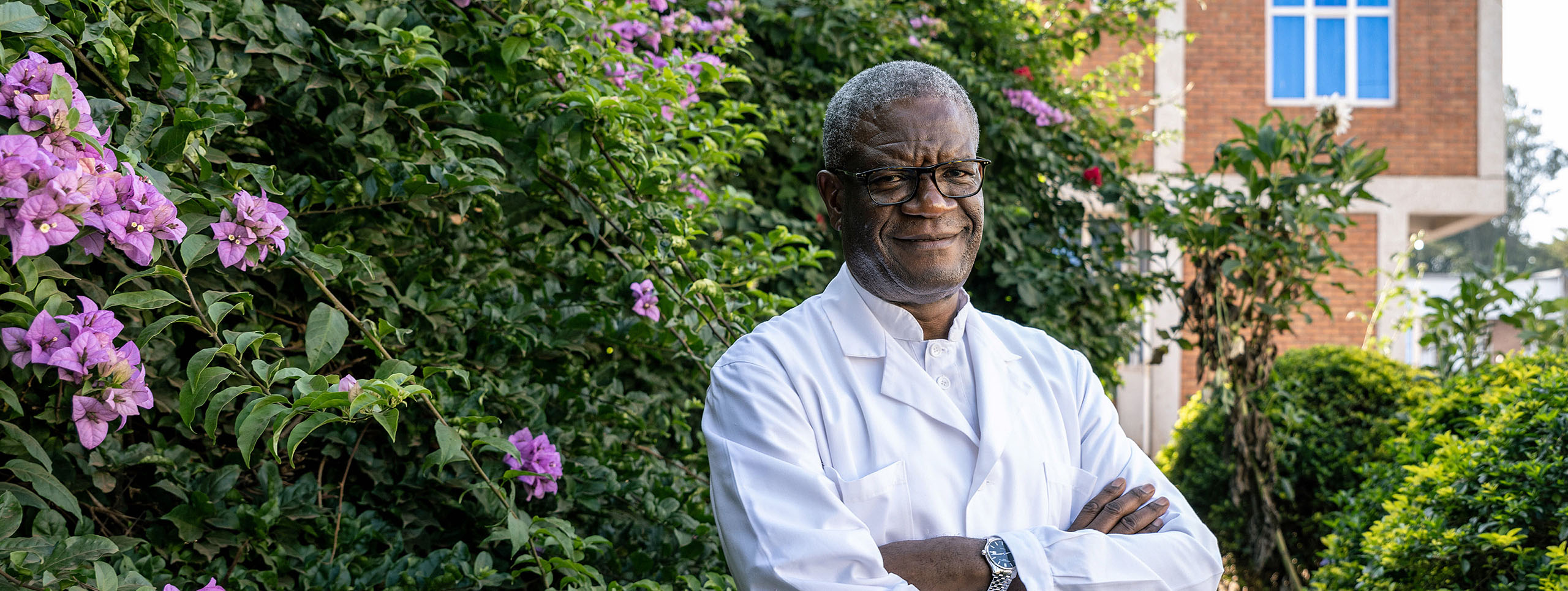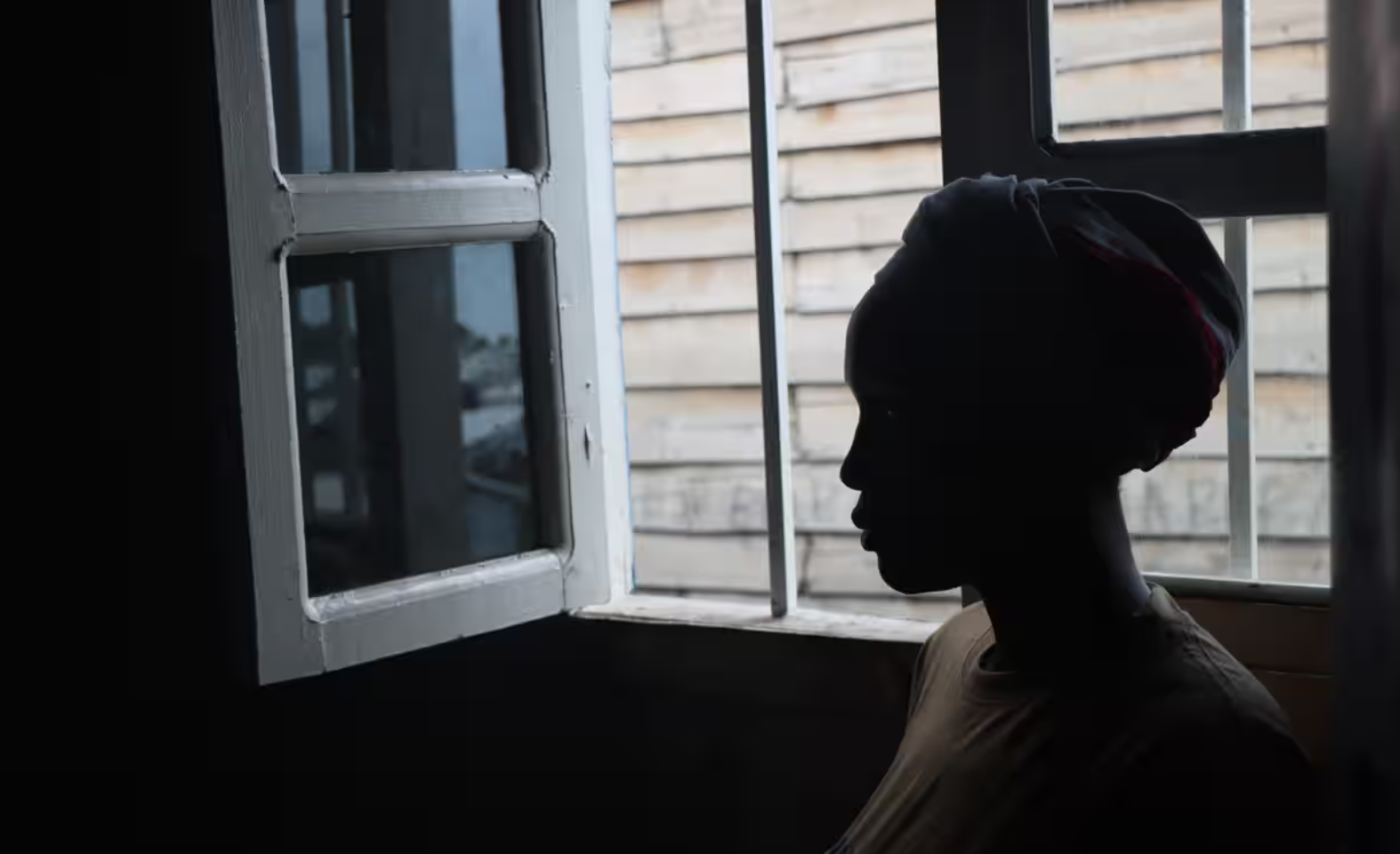Focus on Elections, Repression, Corruption, Rampant Violence in East
(Washington, DC) – United States Secretary of State Antony Blinken should publicly promote free and fair elections, respect for human rights, and anti-corruption efforts during his visit to the Democratic Republic of Congo on August 9 and 10, 2022, 17 US and Congolese organizations and experts said today. Blinken’s visit comes as the abusive M23 armed group has expanded its control in eastern Congo, attacking villages and summarily killing civilians. The UN Group of Experts on Congo recently confirmed renewed support for the M23 from the Rwandan military.
DR Congo under President Félix Tshisekedi is facing widespread human rights abuses and corruption, protracted attacks on civilians by numerous armed groups, and failed democratic institutions. The Congo Basin’s forests and peatlands, which are essential in the fight against climate change, are at increasing risk of logging and mining.
“The DR Congo’s government needs to demonstrate the political will to advance democracy, combat corruption, and address the country’s intensifying crises,” said Floribert Anzuluni of The Sentry and FILIMBI. “Secretary Blinken should denounce the escalating repression against activists, protesters, and journalists and warn that growing intolerance toward critics risks free, credible, and timely elections in 2023.”
Blinken should highlight the need for democratic elections that meet international standards, the groups said. The last elections, in 2018, were marred by widespread irregularities, including voter and candidate suppression, and non-credible official results, not meeting basic international standards for a democratic election. Congolese authorities should develop an accurate registration process with the timely publication of a voters’ list, make a commitment not to exclude lawful candidates or voters, ensure free campaigning by candidates and parties, and require transparent vote tabulation and reporting of results.
Blinken should also publicly condemn security force suppression of peaceful demonstrations and dissent. These problems have been particularly acute in eastern Congo, where the authorities have used martial law to curtail peaceful protests and other rights.
The resurgence of the M23 in the east has exacerbated fighting and abuses by dozens of armed groups in the region. Foreign military forces from Rwanda, Uganda, and Burundi have also been implicated in abuses against civilians.
The M23, originally made up of soldiers who mutinied in early 2012, went on to commit widespread war crimes, with support from Rwandan troops. Over the past decade, Congo failed to demobilize the remnants of the group. In 2021 the M23 began rebuilding its ranks. Since May, M23 forces have at times overrun UN-backed Congolese forces in eastern Congo. Over the course of the renewed fighting, hate speech, in some cases by government officials, and stigmatization of communities linked to neighboring countries have been growing.
The UN Group of Experts on Congo, mandated by the UN Security Council to monitor the implementation of its sanctions regime, confirmed in June the presence of men in Rwandan military uniforms in M23 camps. On August 4, media reported that the Group of Experts found “solid evidence” of Rwandan forces fighting alongside and providing other support to the M23. The government of Rwanda has repeatedly denied supporting the M23. Additionally, violence by other armed groups has increased throughout the region, including around Beni and Ituri.
Blinken should make clear that the US will impose targeted sanctions on government officials and others found to be supporting abusive armed groups. He should also press for reform of the national army, riven by patronage relationships and embezzlement. Any settlement of the armed conflicts in the east should reject an amnesty for those responsible for grave international crimes, should not permit abusive commanders to integrate into Congo’s armed forces, and should include a vigorous disarmament, demobilization, and reintegration program under new leadership.
“Secretary Blinken should inform Rwanda’s President Paul Kagame, as President Barack Obama did in 2012, that the US will not tolerate any support for M23,” said Father Rigobert Minani Bihuzo of the Centre d’études pour l’Action sociale (Center of studies for social Action, CEPAS). “He should emphasize the Congolese government’s need for military reform, including improved anti-corruption mechanisms, the vetting and removal of abusive officers, and investigations of officers implicated in past war crimes.”
President Félix Tshisekedi has made very little progress in dismantling high-level corruption, which stymies security, development, and responsible investment. Unrestrained corruption in the lucrative mining sector denies the Congolese people the benefits of the country’s vast natural wealth and deters responsible businesses from making long-term investments in the country.
Blinken should urge the government to publish all mining contracts, including those with Dan Gertler, a businessman under US sanctions, the groups said. The government should make a genuine effort to combat systemic corruption, including in the mining and logging sectors, and impose accountability on those complicit in looting the country. It should address the findings of the “Congo Hold-Up” investigations, an account of large-scale corruption by a consortium of media and international groups.
Conflict across the Great Lakes region and political turmoil and violence in Congo necessitate a new regional policy strategy by the Biden administration to address urgent security and humanitarian issues, the groups said, including appointing a special envoy for the region. Past US special envoys to the Great Lakes Region who had senior diplomatic status and sufficient resources have played a vital role in mitigating conflict and addressing democracy and human rights issues, so long as they were sufficiently senior, pursued goals through diplomatic and financial pressure, and were well staffed. A special envoy could also help pursue administration priorities on global warming and protection of the Congo rainforest.
“Secretary Blinken’s trip to Congo should reinforce efforts to advance democratic elections, combat corruption, and end rights abuses,” said Ida Sawyer, director of the Crisis and Conflict Division at Human Rights Watch. “The US should appoint a special envoy to the Great Lakes region to demonstrate that it takes these problems seriously and wants to assist in meaningful democratic reforms.”
Signatories:
American Jewish World Service
Anthony W. Gambino, Former USAID Mission Director, DRC
Center for Civilians in Conflict (CIVIC)
CREDDHO (Centre de recherche sur l’environnement, la démocratie et les droits de l’homme)
FILIMBI
Fred Bauma, Executive Secretary at Ebuteli, Lucha (lutte pour le changement) activist
Human Rights Watch
Jason Stearns, Assistant Professor, Simon Fraser University (SFU)
Jewish World Watch
Joshua Z. Walker, Director of Programs, Congo Research Group, New York University Center on International Cooperation
Lucha (Lutte pour le changement)
Never Again Coalition
Panzi Foundation
RODHECIC (Réseau d’organisations des droits de l’homme et d’éducation civique d’inspiration chrétienne)
Stephen R. Weissman, Former Staff Director, US House of Representatives Subcommittee on Africa
The Sentry
UNIS
